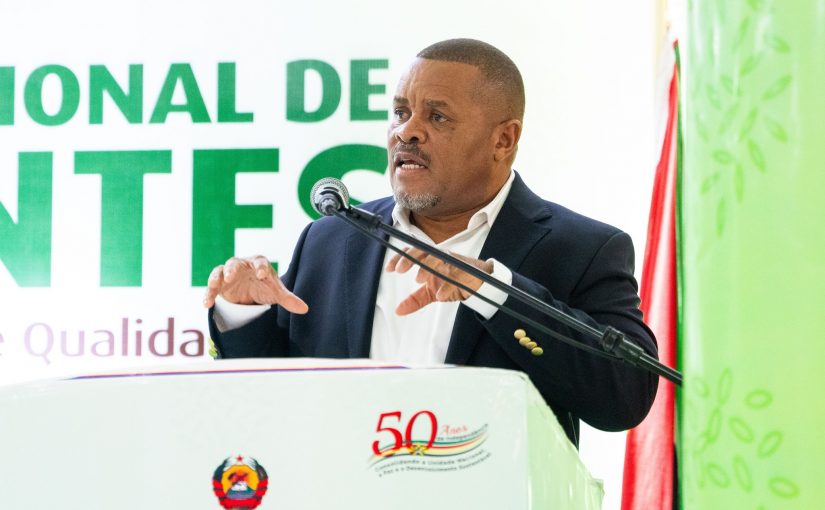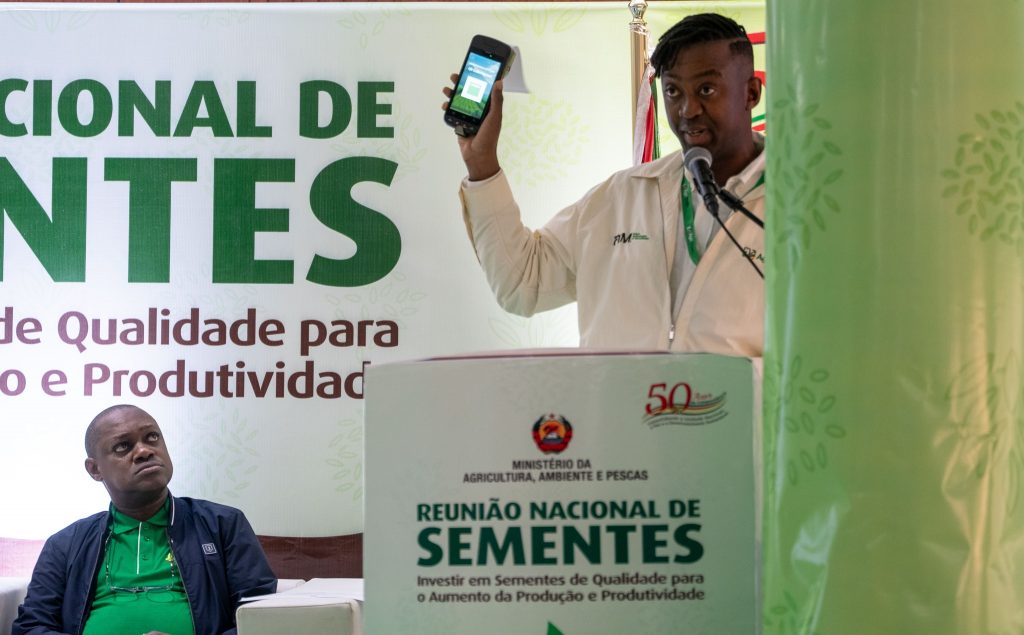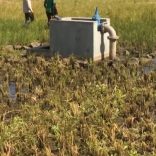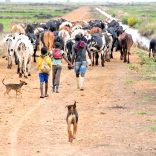Mozambique: Mopeia to have irrigation systems powered by national electric grid and solar energy
Mozambique: Government announces US$20 million funding for seed production chain

Photo: Ministério da Agricultura, Ambiente e Pescas
The Mozambican Ministry of Agriculture has made available US$20 million (€17.2 million) to finance the seed production chain and improve conservation facilities and production equipment, the government announced on Friday.
“The amount is intended for agro dealers, sellers of agricultural products, seed production companies, warehouse modernization, the acquisition of trucks, and the hiring of seed multipliers. It is also intended for producers who wish to produce on a large scale to supply agribusinesses and to contribute to the purchase of tractors and motor pumps,” the Mozambican Ministry of Agriculture, Environment, and Fisheries says in a statement released on Saturday.
The allocation of the amount was made public after the National Seed Meeting by the Minister of Agriculture, Environment, and Fisheries, Roberto Albino, who laid out the goal of “transforming agriculture into a profitable business” to “achieve a production scale that allows Mozambique to be fed”.
Fertilizers will not be distributed free of charge, but exceptions will be made for vulnerable farmers, supported by the National Institute for Disaster Management, to address “emergency situations” and “with the World Food Program, to create strategic agricultural reserves”.
The minister also spoke of reforms underway in the seed chain, explaining that the digitalization of services was vital for enabling the registration and tracking of local seed production stakeholders and for limiting the circulation and sale of counterfeit seeds, as well as preventing corruption.
“All financing programs that the ministry will facilitate will only operate through digital platforms, where seed chain actors must register to prevent the existence of shadow farmers, suppliers, and other operators. Anyone not registered in the system will not be able to benefit from the financing provided by the institution,” Roberto Albino added.
The minister criticized seed companies that provide “poor-quality and exorbitantly priced” inputs without “concerning the quality and germination capacity of the seeds”.
On June 20, the Mozambican government launched a new food security strategy aimed at reducing chronic child malnutrition in the country, which has been exacerbated by climate change in recent years.
The strategy aims to “have healthy, nutritious agriculture on a scale that can solve the country’s food problem,” Albino said at the launch of the new Food and Nutrition Security Policy and Strategy (PESAN).

Mozambique has made progress in reducing food insecurity, but chronic malnutrition, especially among children under five, remains high, affecting 37% of this population group, according to government data released in 2023.
PESAN 2024-2030 was developed to address this problem by integrating multi-sectoral efforts to ensure food and nutritional security throughout the country, Albino said.
According to the executive secretary of the Technical Secretariat for Food and Nutrition Security (SETSAN), over the last ten years, the rate of chronic malnutrition in children under five has fallen from 43% (2013) to the current 37% (2023), levels however still considered very high compared to the recommendations of the World Health Organization.
Civil society groups in the country have warned of the urgent need to combat child malnutrition in Mozambique, a situation exacerbated by climate and security factors.













Leave a Reply
Be the First to Comment!
You must be logged in to post a comment.
You must be logged in to post a comment.